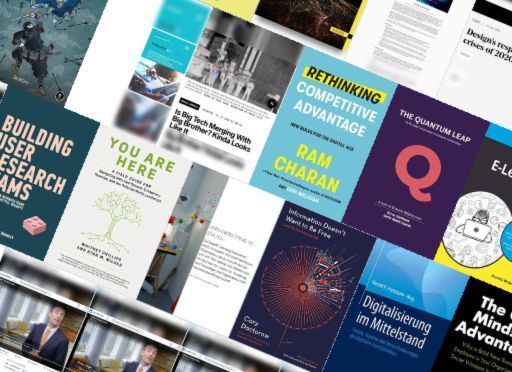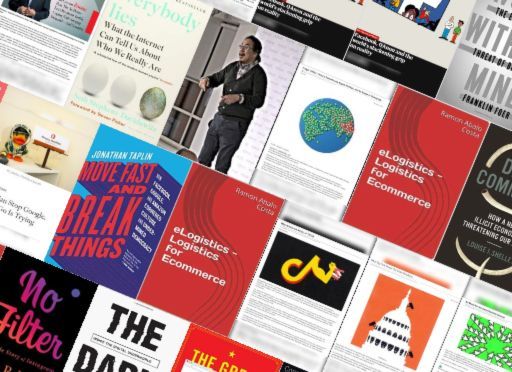Linguist Gretchen McCulloch explores the origins of internet language and symbolic usage. She finds a place for today’s new forms of typed online language on the unending continuum of the written word’s organic changes.

How Language Changes
In only a few decades, the internet has transformed how people use informal written language. Linguist Gretchen McCulloch discusses how technology and the need to convey emotion have created novel forms of online expression. McCulloch mindfully considers the historical context of her linguistic practice. Drawing on research, she explains how chat, weird typography, emoji and memes emerged to shape web culture. Whether online lingo baffles you or net-speak is your native tongue, you’ll gain insight into how and why language evolves.
Informal Writing
The internet brought an explosion of informal written language: Email, texts, chats and social media posts. For a linguist, this huge treasure trove of information illuminates how people use language now and how that usage changes over time.
Language is the ultimate participatory democracy. Gretchen McCulloch
Formal writing tends to be abstract and impersonal. Informal writing is intensely personal. Linguists once had to travel and gather data to learn how people speak in different regions and subcultures. Now scientists can gather data from surveys online or directly from tweets and posts. Linguists can deduce how people talk by observing their nonstandard, informal writing.
Language Changes
Historically and cross-culturally, McCulloch reports, women lead linguistic change. Women tend to have broader networks of “weak ties” – loose social connections outside direct family groups – than men have. More linguistic innovation occurs on Twitter, which has a higher incidence of weak ties, than on Facebook, which favors “strong ties” within networks of people you know.
We no longer accept that writing must be lifeless, that it can only convey our tone of voice roughly and imprecisely, or that nuanced writing is the exclusive domain of professionals. Gretchen McCulloch
Weak ties foster linguistic innovation; strong ties spread and reinforce those changes. People adopt more new words in the first third of their lives than at any other time, and, as adults, they adopt new vocabulary when they join a new community.
“Columbusing”
The English language features coded markers of class, education, ethnicity and culture within layers of prescriptive grammar.
Internet writing is a distinct genre with its own goals, and to accomplish those goals successfully requires a subtly tuned awareness of the full spectrum of the language. Gretchen McCulloch
The web makes the origins of linguistic twists and turns easier to trace and credit. The internet term for appropriating something – like a word or phrase – from a subculture without giving it credit is “columbusing,” as when white people “discover” something another community has already known about for a long time.
Three Generations
The original generation of “Old Internet People” were pioneers who created and used tools to build the networks that predate the modern internet. Their linguistic innovations derived from technical lingo or acronyms. This cohort implanted the attitude that the web should be a social place fostering the range of human expression.
Language is a thing that lives in the minds of individual humans at individual points in time, a thing that can’t be fully encompassed in a static list of uses like a game of chess. Gretchen McCulloch
The “Semi Internet People” and “Full Internet People” differentiated themselves by their social choices. The Semi Internet People adopted the web for their work and only gradually embraced its social aspects. For nuance and social context, Semi Internet People prefer voice conversation. Full Internet People quickly adopted platforms connecting them with friends, peers and people with shared interests.
“Pre Internet People” are mostly older and may have hoped to ignore the whole internet thing, before they grudgingly accepted it. They regard the internet as encompassing Facebook, YouTube, WiFi and touchscreens. Pre Internet People don’t use “LOL” or emoji. They prefer an older version of informal writing, with multiple commas, dots or dashes to separate thoughts.
Creating, sharing or laughing at a meme is staking a claim to being an insider. I am a member of internet culture, it says, and if you don’t get this, then you aren’t. Gretchen McCulloch
Because Post Internet People began texting and using social media as tweens or early teenagers, their internet-specific language is fluid and nuanced.
Creative Typography
As users gain fluency in writing online, politeness replaces short, efficient utterances that might sound rude.
When we learn to write in ways that communicate our tone of voice, not just our mastery of rules, we learn to see writing not as a way of asserting our intellectual superiority, but as a way of listening to each other better. Gretchen McCulloch
The elimination of capitalization and punctuation altogether – known as “typographic minimalism” – can read as irony, annoyance or sarcasm. This requires a community that understands the code because readers must perceive and interpret subtle deviations from typographical norms.
Emoji
Writing’s greatest strength and greatest weakness is that it represents communication separated from the presence of the person communicating.
Enter emoji – such as a thumbs up – that are culturally specific and completely arbitrary. When Apple (2011) and Android (2013) brought emoji into the Unicode dataset on their devices, these symbols gained global popularity.
Emoji don’t just have one function; they have a range of them. But crucially, it’s the same range that gestures have, and that’s why emoji caught on so quickly and completely. Gretchen McCulloch
Emoji, like nodding or making an “mm-hmm” sound, show you are engaged in the discussion. They allow conversations that aren’t all words to remain emotionally satisfying.
Chat
Even babies who don’t yet speak in sentences learn the fundamental convention of oral conversation, a rhythm of back and forth. Back and forth chat has become the most common mode of real-time communication online.
Forums, blogs and video games serve as a third home place – such as a coffeehouse – where people gather to converse. Frequent participants build their community with in-jokes and references that are opaque to casual visitors.
Memes
Richard Dawkins invented the term “meme” in 1976 to describe an idea or trope that survives and spreads through social selection like a biologic gene survives and spreads through natural selection.
Memes form the atoms that users recombine to produce new units of meaning or entertainment, which spread and reproduce. Making and sharing memes is how participants shape internet culture.
Resilient
No rigid rules bind language, which like the internet, is a flexible, resilient, interconnected, decentralized network. Technology and communication tools will continue to evolve, and language in all its multiplicity will continue to change. The internet offers ample opportunity for everyone to shape that future.
Passion for Language
Gretchen McCulloch loves language, its nuances, its ceaseless evolution and its unexpected grace. Regarding internet language, she is agnostic. McCulloch finds that the internet generates no particular moral or stylistic degradation in language or usage. Language changes, and she traces how it has altered and adapted in this particular realm. She writes, as you might expect, with clarity, wit, insight and superb grammar. McCulloch’s essays will engage students, professors and all writers.
Other enjoyable works on the nature of language include The King’s English: A Guide to Modern Usage by Kingsley Amis; Spunk & Bite: A Writer’s Guide to Bold, Contemporary Style by Arthur Plotnik; Woe Is I: The Grammarphobe’s Guide to Better English in Plain English by Patricia T. O’Conner and Eats, Shoots & Leaves: The Zero Tolerance Approach to Punctuation by Lynne Truss.









